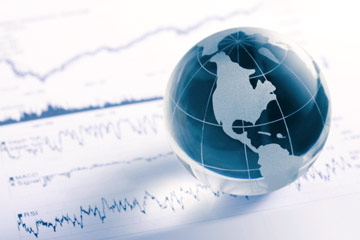Is Global Economy Slowing Down?
Until sometime back, the investors were drawing excellent profits at the Wall Street, which according to financial experts was destined to last really long. However, 2018 hasn’t started on a very positive note and the market does not expect the global economy to register attractive growth figures for the remaining part of the year. Given such a scenario, there’s no denying the fact that the global economy is headed for a decline. Discover the many factors that are impacting the global economy negatively.
2017 was one of the best years for economies around the world, even as they registered their best ever performances in 6 years. However, the scenario for 2018 is slightly different. Although the World Bank did forecast that the global economy would grow by at least 3.1 % in 2018 in view of the recoveries that would take place in manufacturing, trade and investment and also because of the benefit that economies exporting commodities would get from strengthening prices of the commodities, this upswing has lasted only for a brief period.
As far as the U.S economy is concerned, the country recorded a sub-par growth in the 1st quarter of the year. The real Gross Domestic Production for the U.S. economy expanded at a rate of 2.3% annually. This was followed by a major drop in the consumer spending. In fact, the JP Morgan Global PMI figure slumped to 53.3 in the month of March as opposed to 54.8 recorded in the month of February. This was steepest drop in the index when compared to the past two years. Thus, while the PMI for the month of February was quite consistent with GDP going up by 3 % on a global basis, the figure for March states that the U.S. economy grew only by 2.5%. This clearly indicates that the global economy is already slowing down.
Economists and market experts are also concerned about the risks pertaining to the trade policy and they firmly believe that it is one of the biggest threats to the existing growth potential of the global economy. According to them, risks related to trade policy may bring forth risks of recession. This alongside the maturing business cycle, particularly in developed countries has forced the experts to revise the global economic growth percentage to 3.2%, which is slightly lower from the 3.3% projections made in the month of February.
In addition to this, the bond crisis is also growing with every passing day and may cause the global economy to experience recession in a synchronized manner. With central banking institutions around the world looking to escape the rate of interest repression and with debt load increasing massively, the bond bubble may soon burst and slow down the global growth process further. Hence, it is quite evident that the huge global debt is impeding growth. In fact, this debt crisis has also expanded at the corporation level.
By André Lazzuri


